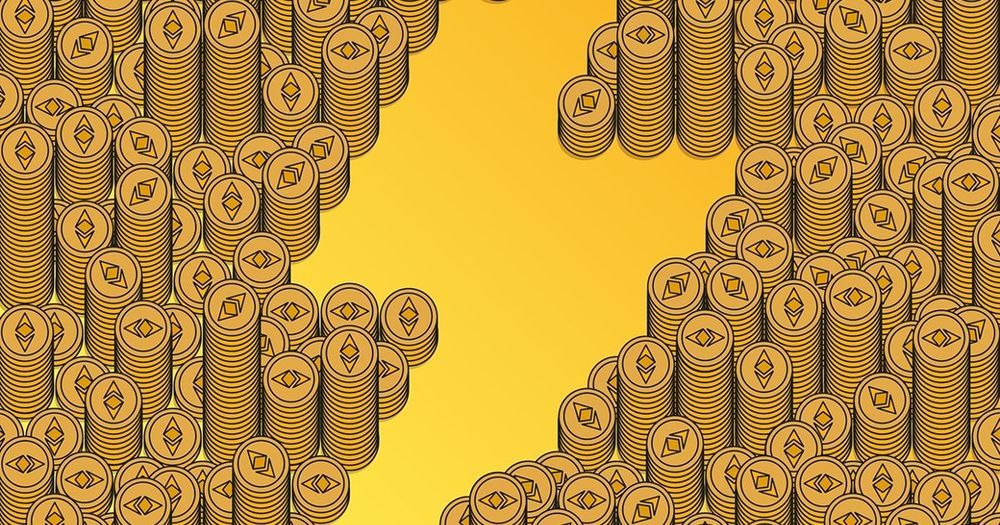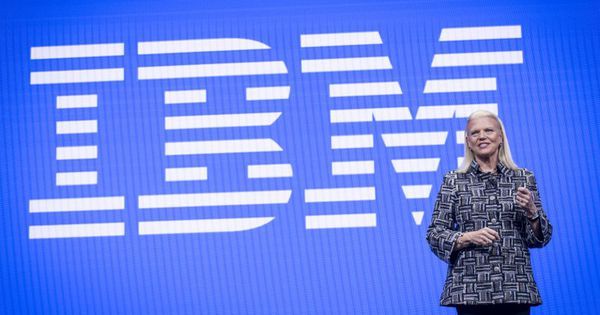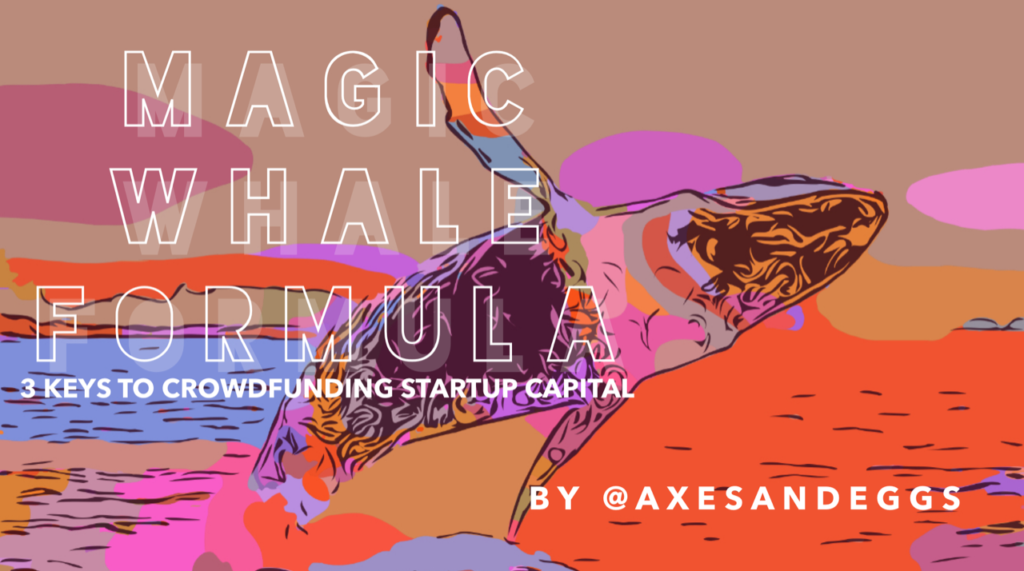Cryptocurrency, biohacking, and the fantastic plan for transgenic humans.



While I’m not a big supporter of cryptocurrency, I am a supporter of utilizing blockchain technology in other areas. For example. logistics. The Linux Foundation announced the creation of the Hyperledger Grid project just for that purpose. However, as they state, this isn’t a software project, but a platform project.
Supply chain is commonly cited as one of the most promising distributed ledger use-cases. Initiatives focused on building supply chain solutions will benefit from shared, reusable tools. Hyperledger Grid seeks to assemble these shared capabilities in order to accelerate the development of ledger-based solutions for all types of cross-industry supply chain scenarios.
Grid intends to:

Blockchain shows major potential to drive positive change across a wide range of industries. Like any disruptive technology, there are ethical considerations that must be identified, discussed, and mitigated as we adopt and apply this technology, so that we can maximize the positive benefits, and minimize the negative side effects.
Own Your Data
For decades we have sought the ability for data subjects to own and control their data. Sadly, with massive proliferation of centralized database silos and the sensitive personal information they contain, we have fallen far short of data subjects having access to, let alone owning or controlling their data. Blockchain has the potential to enable data subjects to access their data, review and amend it, see reports of who else has accessed it, give consent or opt-in / opt-out of data sharing, and even request they be forgotten and their information be deleted.
Monetize Your Data

I love hearing the enthusiasm and joy in the voices of first time home buyers who are going to save money, bond and remodel their house together. Brand new doctors, seasoned lawyers, accountants, project managers, the boldest of GenX and Millennials who grew up swinging VR joystick in lieu of hammers. But they’ve watched Property Brothers and Love It or List and have the best database of YouTube videos for home remodeling in their entire subdivision or building. They even park in the “Pro” section at Home Depot and have their very own monogrammed Leatherman construction gloves.
You can remodel your own home. Even “just” your kitchen or “just” your bathroom. You can read and have all the resources at your disposal. But don’t. Don’t even fucking think about it. Remember how you tried to cook Thanksgiving dinner last year and ended up burning up your kitchen, which is why you need to replace it? Those were simple enough directions too, right?
But what does this have to do with blockchain and more importantly your business?
Glad you asked. Well, your business is like your house. Blockchain is like a remodel. You can do it yourself. You’re after all a pro at your business. But your business isn’t blockchain. Your business is shipping, consulting, farming, logistics, banking, money exchange, insurance, lending, maybe even selling pizzas. Your business is a business. Your business isn’t a way of doing business or a business tool like blockchain. Your business is a way of generating you income to provide for your family, workers, community, financial security and future. It ain’t a way to decentralize any of those, unless you want to find out what a “decentralized” retirement looks like. (Hint, think working poor at 75 years old. #GigEconomy).

The problems with cryptocurrencies and their energy usage are well-known. However, Ethereum is planning to address the issue. They’re planning on doing a 99% decrease in the amount of energy used in obtaining new coins.
It would be good for other cryptocurrencies to take this problem just as seriously.
The cryptocurrency is going on an energy diet to compete with more efficient blockchains.



The 3 key ingredients for attracting investors to your crowdfunding (ICO/STO) campaign
Below is a redacted and slightly edited and updated version of a memo provided to a client regarding how to attract investors to their business, in mid 2017. For background, they’re a 5 year old private investment firm, whose stock is traded OTC and who invest in startups focused on blockchain tech. To further this model they were exploring additional ways to raise capital, specifically to acquire more startups. Below is a high level framework of what investor “whales” are looking for. This is not investment advice. These are redacted insights into what you should be considering if you’re looking to also engage potential investors in your business enterprise.
If you don’t have time to read it all, I’ll summarize: It still takes money to make money.
Note — all crowdfunding campaigns (regardless of if you call them ICOs / STOs) require a legitimate business model, tangible solutions to real problems, market size worth investing in and the potential for 100x returns. Otherwise, whales aren’t interested in 10x returns.

I owe Jack Shaw a favor. It’s one of those, “This one time in Cambodia…” type of favors. We won’t speak of it beyond perhaps a nod and wink. It’s not written down anywhere; the details of such are so vague as to be almost non existent, while encompassing the known universe. It expires upon death, of the sun; and can be redeemed whenever and by another person who need only walk up to me and say, “Jack Shaw sent me. He says to tell you ________”. And tada, that favor has been redeemed for value.
Jack would call this favor a “marker.” It’s more valuable than your house, the Empire State Building & 100k Bitcoins combined. It can even be redeemed for something even more precious, my time or an opportunity or access to my network. You know, those things that money can’t buy. Well, you can lease my time from time to time.
Favors, markers and promises are humanities’ first virtual currencies.
They’ve gone digital recently, as Jack might redeem his marker via a WhatsApp or WeChat text message.
Favors and promises aren’t financial obligations per-say. They’re moral debts that can be redeemed for things of intrinsic, monetary, social and/or actual value. Now, here is where things get a little weird. The thing about “money” is that it doesn’t have any value. It’s actually a reflection of a moral debt. Hence why the US dollar is backed by the “Full Faith and Credit of the US Government” and not say, gold or wheat. You believe…that people will feel obligated to pay taxes and in turn the government will collect these social obligations (aka favors) for the good and benefit of The People. This moral obligation is part of that “Debt to Society” you’ve heard so much about, are obligated to pay, but don’t recall actually signing up for.
Long ago, these virtual currencies of favors, promises, social obligations and credits were turned into what we now regard as money. Not because paper money or coins had or have any intrinsic value, but because for trade beyond one’s family or clan, it’s easier to convey/store and document the value of Sam owing you two chickens, using cash as that documentation (or store of value). As you extended to him a two chicken line of credit.
“Credit” is just another favor or marker with terms.
Coins and “Banknotes” (because people wrote down how much credit they gave you) were just the earliest form of noting and coming to consensus on how to document these virtual currencies of favors, markers, promises and credit.
Overtime, what favor or credit money represents has been lost. We’ve been conditioned to simply believing (Full Faith and Credit) that paper money has intrinsic value, when it simply doesn’t.
Paper money isn’t backed backed by anything other than your faith.
Hence why inflation is such a troublesome concept for most. It challenges the fundamental principles of your faith — every time the government prints more paper money. It extends to itself (and then to you, via banks) made up and virtual favors by the billions. They are favors and markers with no value behind them; lines of credit with no chickens attached. So when these virtual chickens come home to roost, as actual value, guess what? There aren’t any chickens, just a whole lotta hungry believers.
Everybody believes in this system of virtual currencies of credit, favor and marker collection, except the banks and the corporations who effectively pay zero in taxes, while simultaneously collecting trillions in credits from people and then turning those virtual dollars into “real wealth.” Think real estate.
Fun fact/Tangent: Why is real estate called “real?” Hint: It has something to do with the fact that money has no value (isn’t real) but shelter/housing does. We’ll talk about how banks and corporations got out of their social contract at your expense later.
